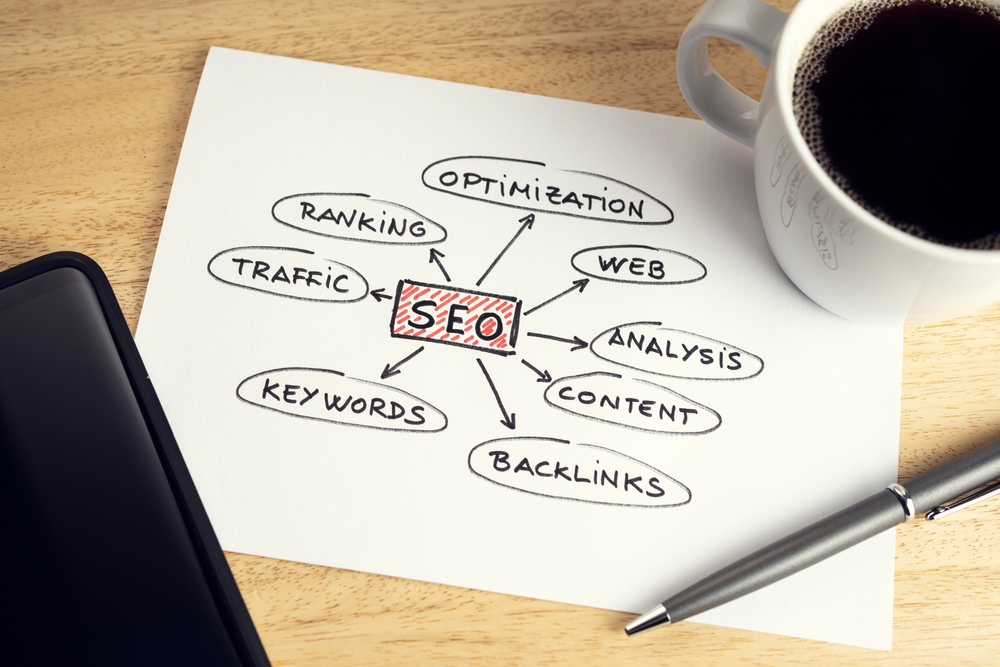
Boost Your Website's Rankings: Essential SEO & Link Building Tips

In today's digital world, having a well-ranked website is essential for attracting organic traffic and reaching your target audience. Search Engine Optimization (SEO) and link building are two crucial strategies that can significantly improve your website's visibility and boost its rankings on search engine result pages (SERPs). In this article, we will explore some essential SEO/SEM and link building tips that can help skyrocket your website's rankings and ultimately drive more traffic and conversions.
1. Understand the Basics of SEOBefore delving into the nitty-gritty of SEO and link building, it's essential to have a solid understanding of the fundamental principles behind this practice. SEO involves optimizing your website and its content so that search engines can crawl, index, and rank it effectively. It includes various techniques like keyword research, on-page optimization, technical optimization, and off-page optimization. Knowing the basics will lay a strong foundation for your SEO efforts.
2. Perform Thorough Keyword Research
Keyword research is the backbone of any successful SEO (or SEM) strategy. Identify relevant keywords that align with your business and target audience. Tools like Google Keyword Planner, SEMrush, and Moz's Keyword Explorer can help you uncover valuable keywords that potential customers are using to search for products or services similar to yours. Sprinkle these keywords throughout your website's content to improve its relevancy and increase your chances of ranking higher on SERPs.
3. Optimize On-Page Factors
On-page factors play a crucial role in determining the visibility of your website on search engines. Start by optimizing your website's meta tags, including the title tag, meta description, and header tags (H1, H2, etc.). Make sure your page titles are concise, unique, and contain relevant keywords. Additionally, create informative and well-structured content that is easily readable by both visitors and search engine crawlers. Incorporate relevant keywords naturally throughout your content, but avoid keyword stuffing as it can do more harm than good to your rankings.
4. Enhance Website Speed and User Experience
Website speed and user experience are critical ranking factors that can significantly impact your website's performance. Slow-loading websites tend to have higher bounce rates, leading to poorer rankings. Optimize your website's speed by compressing images, minifying CSS and JavaScript files, and utilizing caching techniques. Additionally, ensure that your website is mobile-friendly and responsive, providing users with a seamless browsing experience across different devices. A positive user experience not only improves your SEO (search engine optimization) but also increases the chances of visitors staying on your site for longer periods, thereby potentially increasing conversions.
5. Build High-Quality Backlinks
Link building is an indispensable aspect of SEM/SEO that involves acquiring high-quality backlinks from reputable and authoritative websites. When other websites link to yours, search engines perceive your website as trustworthy and authoritative. However, not all backlinks are created equal. Focus on acquiring links from relevant and authoritative websites within your industry. Guest blogging, creating valuable content, and reaching out to influencers in your niche can help you secure quality backlinks that boost your rankings. Avoid black hat techniques like buying backlinks or participating in link farms, as these practices can result in penalties from search engines.
6. Leverage Social Media
Social media platforms offer an excellent opportunity to amplify your content and reach a wider audience. Use social media to promote your website's content, engage with your followers, and build brand awareness. When your content gets shared across social media platforms, it can generate natural backlinks, driving traffic to your site and boosting your SEO efforts. Additionally, search engines like Google consider social signals as a ranking factor, so having an active and engaged social media presence can positively impact your website's rankings.
7. Monitor and Analyze Your Performance
Regularly monitoring and analyzing your website's performance is crucial for identifying areas that need improvement and making informed decisions to optimize your SEO strategy. Utilize tools like Google Analytics and Google Search Console to track your website's organic traffic, bounce rate, click-through rates (CTRs), and keyword rankings. By gaining insights into how users interact with your website, you can make data-driven decisions and optimize your SEO efforts accordingly.
Frequently Asked Questions:
Q1. How long does it take for SEO efforts to yield results?A1. SEO is a long-term strategy that requires patience and consistency. While some improvements can be seen relatively quickly, significant results usually take several months to manifest. It's important to consistently monitor and optimize your SEO efforts to achieve sustainable, long-lasting rankings.
Q2. Do I need to hire an SEO agency or professional for effective SEO?
A2. Hiring an SEO agency or professional can certainly provide expertise and save you time. However, it is possible to implement effective SEO strategies on your own if you are willing to dedicate time for learning, staying updated, and implementing best practices.
Q3. Are there any penalties for using unethical SEO practices?
A3. Yes, search engines like Google penalize websites that use unethical SEO practices. These penalties can severely impact your rankings and organic traffic. It's important to follow ethical and white hat SEO techniques to maintain a healthy website presence.
Q4. Are keywords still important for SEO?
A4. Yes, keywords are still an essential component of SEO. While the focus has shifted from keyword density to semantic search and user intent, keywords are crucial in signaling the relevance of your content to search engines. Targeting the right keywords can help drive organic traffic to your website.
Q5. Can link building harm my website's rankings?
A5. Yes, improper or unethical link building practices can harm your website's rankings. Engaging in activities like buying backlinks, participating in link schemes, or spamming your links across low-quality websites can result in penalties from search engines. Focus on acquiring high-quality backlinks naturally and from relevant sources to avoid any negative impact.
In conclusion, implementing effective SEO and link building strategies is essential to boost your website's rankings and attract organic traffic. By understanding the basics, performing thorough keyword research, optimizing on-page factors, enhancing user experience, building high-quality backlinks, leveraging social media, and monitoring your performance, you can significantly improve your website's visibility and drive successful outcomes. Remember to stay updated with the latest SEO trends and best practices to stay ahead of the competition and maintain a strong online presence.
Other useful resources
- https://www.seoguru24.com/promote-website/